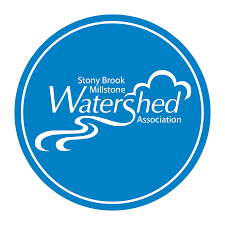By Jim Waltman
This has been a very emotional week for our country. The presidential election was extremely close and the nation is split between those who are celebrating, those who are angry or mourning, and others who are frustrated by the choices that were presented on the ballot.
Like most people, I have friends and family who voted for each of the four main candidates and others who didn’t vote at all. I think it’s a safe bet that at the Watershed we have members, volunteers and staff that did likewise.
As a charitable non-profit organization, the Watershed cannot and does not engage in electoral politics. But our clean water mission requires us to stand up and speak out when our values are threatened.
One thing is clear: this election was not about the environment. In fact, the issue was raised only obliquely in the four-and-a-half hours of debates that the two candidates participated in.
Unfortunately, what the president-elect has said about the environment raises serious concerns.
About the Environmental Protection Agency, he said during a debate in March “We are going to get rid of it in almost every form. We’re going to have little tidbits left, but we’re going to take a tremendous amount out.”
He has called climate change a “hoax” and has vowed to “cancel” the groundbreaking Paris climate agreement signed by more than 190 nations, and to repeal measures taken by the Obama Administration to reduce greenhouse gas emissions from power plants, vehicles and appliances.
The president-elect has also indicated that he will eliminate an Obama Administration measure called the “Waters of the United States rule,” that was developed to protect waterways and wetlands, and another effort aimed at reducing the leakage of methane, a greenhouse gas that is 100 times more potent than carbon dioxide, by the oil and gas industry.
In addition, many of his advisors have a long track record of working against environmental regulation. I know some of these people personally from my 15 years working in Washington.
An anti-government ideologue named Myron Ebell (who I debated on CNN years ago) is heading the transition team relating to the Environmental Protection Agency (EPA) and is rumored to be the leading candidate to head that critical agency. Mr. Ebell is an infamous denier of climate change, when he’s not promoting global warming as something we should learn to “love.”
Forrest Lucas, co-founder of oil products company Lucas Oil, is considered a top contender to become secretary of the interior and custodian of our national parks, wildlife refuges, endangered species, migratory birds and other wildlife.
Oil tycoon Harold Hamm is being touted as the leading candidate to become secretary of energy. Mr. Hamm was reportedly so livid at research conducted by scientists at the University of Oklahoma into the links between oil and gas activity and the state’s fourfold increase in earthquakes that he tried to have the researchers fired.
The new administration will likely de-emphasize the national government’s role in many areas, including the environment. We should expect budget cuts for a broad array of programs, including environmental protection.
What all of this means to me is that the work of local and regional environmental organizations like the Watershed Association will be more important than ever over the next four years. With less leadership anticipated from Washington, state and local governments must take up the slack and community organizations like ours must mobilize citizen action at those levels of action.
A weaker EPA can be at least partially offset by strong action by municipalities. Fortunately, on many environmental issues, New Jersey’s towns have the authority to adopt local ordinances that are stronger than state regulations.
For years, the Watershed has worked with central New Jersey towns to adopt measures that protect streams, floodplains, forests, steep slopes and other sensitive environments. And we are currently working with Princeton, Cranbury, Hightstown, Hillsborough, Hopewell and other towns to strengthen their stormwater ordinances and implement “green infrastructure” projects to mitigate the harm that flooding can do to our homes, businesses and communities.
So if you are upset by the election, once you’ve completed your mourning and marching, it’s time to get active in your community to protect our environment and the other values that you care about and support the organizations that stand ready to work with you.
Jim Waltman is the executive director of the Stony Brook-Millstone Watershed Association. The Watershed is a member-supported non-profit organization that works to keep water clean, safe and healthy in central New Jersey. For more information about the Watershed, including how to volunteer and donate to its efforts, visit www.thewatershed.org or call (609) 737-3735.

